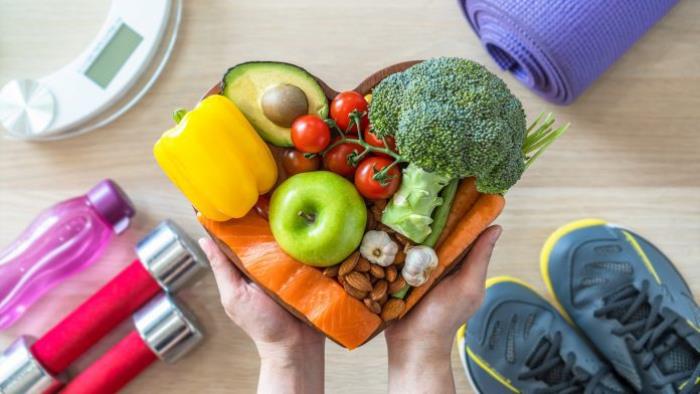Weight regain is a common concern after intragastric balloon removal, primarily due to the return of normal stomach capacity and the potential resumption of old eating habits. Without sustained lifestyle changes, patients may struggle to maintain their weight loss, emphasizing the need for ongoing dietary and behavioral adjustments to prevent reversal of the achieved results.
Medical disclaimer: This content is for general awareness and does not replace a doctor’s consultation. For diagnosis or treatment decisions, consult a qualified specialist.
The Importance of Long-Term Lifestyle Changes for Sustained Weight Loss
Lasting weight loss after balloon treatment depends on permanent lifestyle modifications, including healthy eating, regular exercise, and mindful behavior. These changes help patients maintain a lower calorie intake, sustain improved metabolic function, and adopt habits that prevent weight regain, ensuring long-term success.
Building Healthy Eating Habits After Balloon Treatment
Establishing healthy eating habits is vital to prevent weight regain. Patients should focus on nutrient-dense foods, avoid excessive consumption of processed or high-calorie items, and practice mindful eating to control portions and avoid emotional eating. Gradual, sustainable dietary improvements are key to maintaining progress.

The Role of Portion Control in Preventing Weight Regain
Portion control remains critical after balloon removal, as overeating can quickly lead to weight gain. By consuming smaller, well-balanced meals throughout the day, patients can manage hunger levels and calorie intake more effectively, helping to maintain their reduced weight without feeling deprived.
How to Create a Balanced Diet Plan for Long-Term Success
A balanced diet plan combines lean proteins, healthy fats, whole grains, and plenty of fruits and vegetables to meet nutritional needs while managing calorie intake. Personalized diet plans tailored to individual preferences and medical conditions provide a sustainable framework for long-term weight management.
Incorporating Regular Physical Activity to Maintain Weight Loss
Regular exercise is indispensable for sustaining weight loss, as it helps burn calories, boosts metabolism, and prevents fat accumulation. Combining cardio workouts and strength training ensures comprehensive fitness, improving both physical health and mental well-being, reducing the likelihood of weight regain.
The Benefits of Strength Training for Sustained Weight Management
Strength training is particularly effective for maintaining weight loss, as it builds lean muscle mass, which enhances metabolic rate and fat-burning potential. Including activities like weightlifting or resistance exercises in a regular fitness routine helps patients achieve long-term body composition goals while supporting overall strength and endurance.
How to Monitor Your Progress and Stay on Track
Regular tracking of weight, measurements, and overall health metrics is essential for staying on track. Journaling daily food intake, exercise routines, and emotional triggers can help identify patterns and maintain accountability.

Managing Emotional Eating and Developing a Healthy Relationship with Food
Addressing emotional eating involves identifying triggers and adopting healthier coping mechanisms, such as exercise, mindfulness, or therapy. Developing a positive relationship with food as fuel for the body, rather than emotional comfort, is crucial for long-term success.
The Role of Hydration in Supporting Weight Maintenance
Adequate hydration aids metabolism, prevents overeating (often confused with thirst), and supports overall health. Consistent water intake helps maintain energy levels and supports digestion, contributing to sustained weight management.
Setting Realistic Weight Maintenance Goals Post-Treatment
Realistic goals consider individual capabilities, medical history, and lifestyle. These goals focus on maintaining a healthy weight rather than striving for perfection, ensuring they are attainable and sustainable over time.
How Meal Planning Can Help Prevent Unhealthy Eating Patterns
Meal planning eliminates impulsive food choices by providing structured and balanced meals. Preparing meals in advance ensures portion control, nutritional balance, and alignment with weight maintenance goals.
Staying Consistent with Follow-Up Care and Medical Guidance
Regular follow-up appointments with healthcare providers help monitor progress, address concerns, and adjust treatment plans as needed. Consistency in medical care ensures long-term success and prevents potential complications.
The Impact of Sleep and Stress Management on Weight Stability
Poor sleep and chronic stress disrupt hormonal balance, leading to increased hunger and cravings. Prioritizing quality sleep and adopting stress management techniques, such as yoga or meditation, promotes stable weight maintenance.
Strategies to Overcome Weight Loss Plateaus After Balloon Removal
Breaking plateaus involves reassessing diet, increasing exercise intensity, and incorporating variety into routines. Consulting with a nutritionist or fitness expert can provide tailored strategies to reignite progress.
Recognizing the Early Signs of Weight Regain and Addressing Them
Early signs include gradual weight increases, increased portion sizes, or reverting to old eating habits. Recognizing these signs and taking corrective actions, such as meal adjustments or increased physical activity, prevents further weight regain.
The Role of Support Groups in Sustaining Weight Loss Motivation
Support groups provide a sense of community and shared accountability. Connecting with individuals on similar journeys offers encouragement, shared experiences, and motivation to stay committed.
How to Use Behavioral Therapy to Maintain Healthy Habits
Behavioral therapy focuses on understanding and changing habits that lead to unhealthy choices. It equips individuals with tools to handle stress, manage emotions, and develop sustainable, healthy behaviors.
Adopting Mindful Eating Practices to Avoid Overeating
Mindful eating encourages awareness of hunger and fullness cues, savoring each bite, and avoiding distractions while eating. This practice helps prevent overeating and fosters a healthier relationship with food.
The Role of Physical Activity in Enhancing Intragastric Balloon Results
Understand how physical activity enhances intragastric balloon results. This article highlights the importance of incorporating regular exercise into your routine to boost weight loss and improve overall health during and after the treatment.
The Importance of Celebrating Non-Scale Victories in Your Weight Loss Journey
Non-scale victories, such as improved energy, better sleep, or fitting into old clothes, highlight progress beyond numbers. Celebrating these achievements maintains motivation and reinforces the benefits of a healthy lifestyle.
Best Intragastric Balloon Treatment in India
The Best Intragastric Balloon Treatment in India offers a non-surgical weight-loss solution by placing a balloon in the stomach to reduce hunger and promote healthy eating habits.
Best Intragastric Balloon Hospitals in India
The Best Intragastric Balloon Hospitals in India are equipped with advanced endoscopy technology and skilled medical teams, providing safe and effective weight-loss treatments.
Intragastric Balloon Treatment Cost in India
The Intragastric Balloon Treatment Cost in India is cost-effective, offering patients an affordable and efficient option for achieving significant weight loss under expert care.
Best Intragastric Balloon Specialists in India
The Best Intragastric Balloon Specialists in India are experienced in performing this procedure, providing personalized guidance and comprehensive support to ensure successful weight-loss outcomes.
FAQ Section
1. Why do some people experience weight regain after intragastric balloon treatment?
Weight regain often occurs due to a return to old habits, such as overeating or reduced physical activity, after balloon removal. Sustaining lifestyle changes is critical to prevent this.
2. What are the most effective ways to maintain weight loss after balloon removal?
Consistency in a balanced diet, regular exercise, hydration, and follow-up care are key to maintaining weight loss. Incorporating healthy habits into daily life ensures long-term success.
3. How can portion control help prevent weight regain?
Portion control prevents overeating and aligns calorie intake with energy expenditure, maintaining a healthy weight. Using smaller plates or pre-measured servings can make portion control easier.
4. What types of exercise are best for sustaining weight loss?
A combination of cardiovascular exercises, strength training, and flexibility workouts supports sustained weight loss by boosting metabolism, building muscle, and improving overall fitness.
5. How can I manage cravings and avoid emotional eating?
Cravings can be managed by identifying triggers, staying hydrated, and consuming balanced meals. Techniques such as mindfulness, journaling, or seeking support from a therapist can help combat emotional eating.